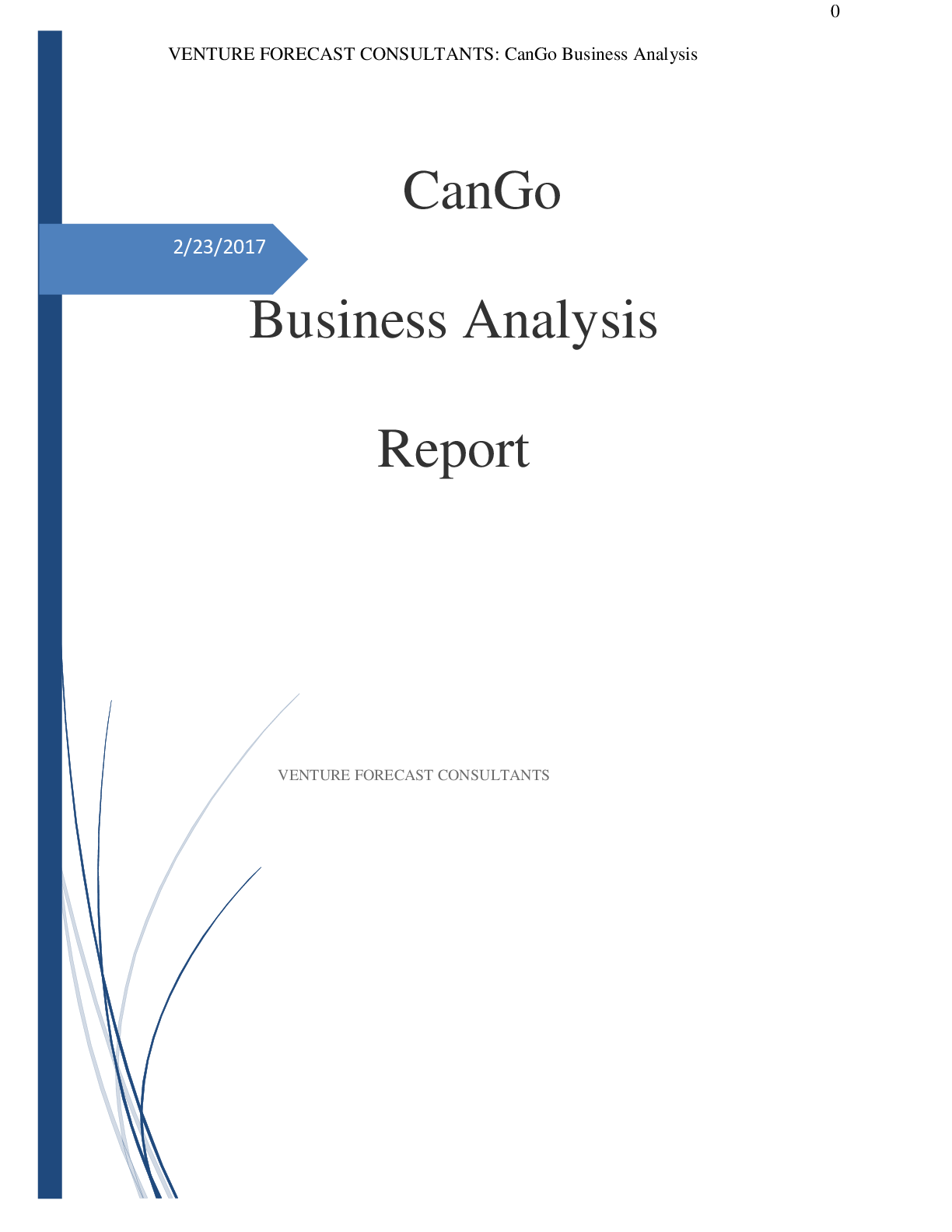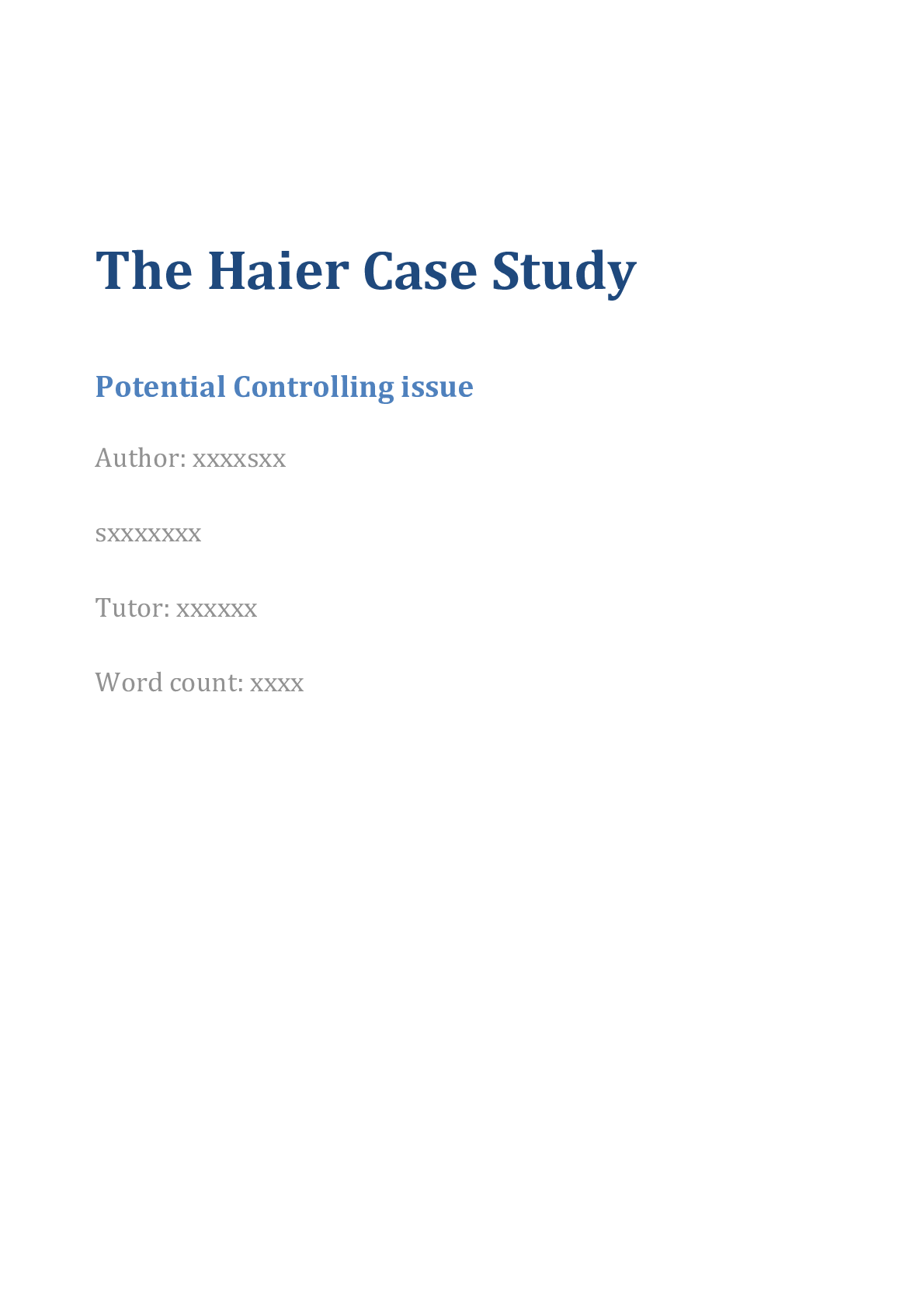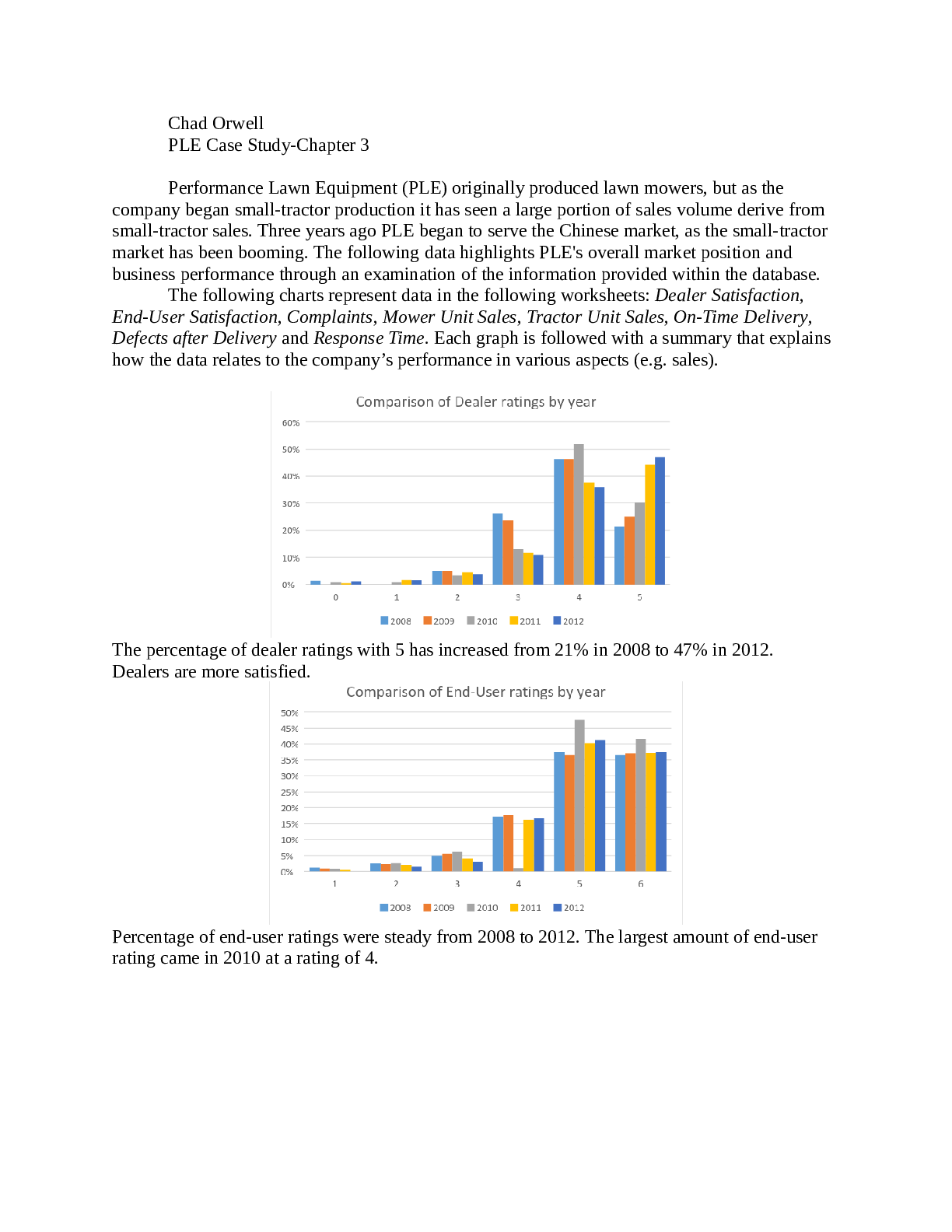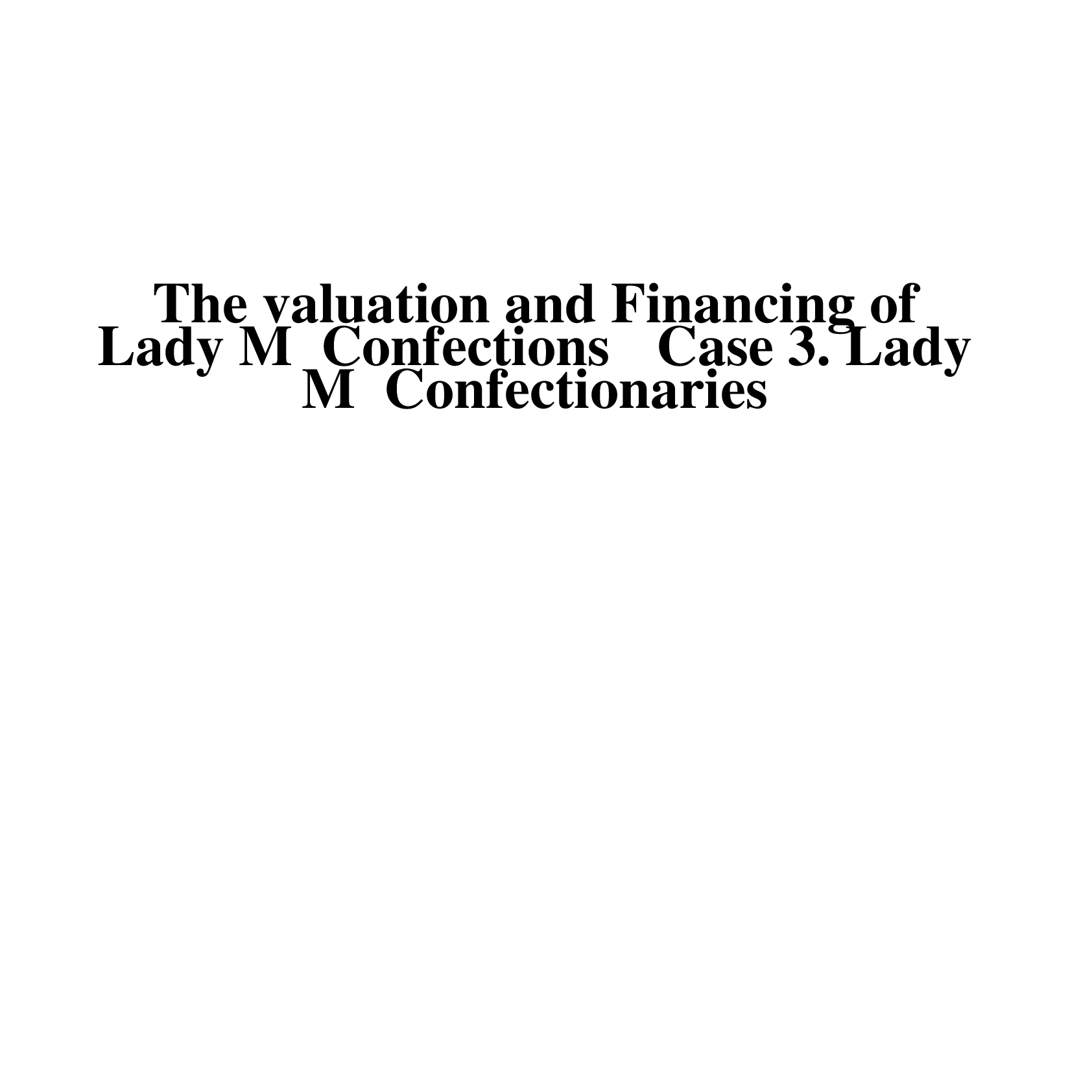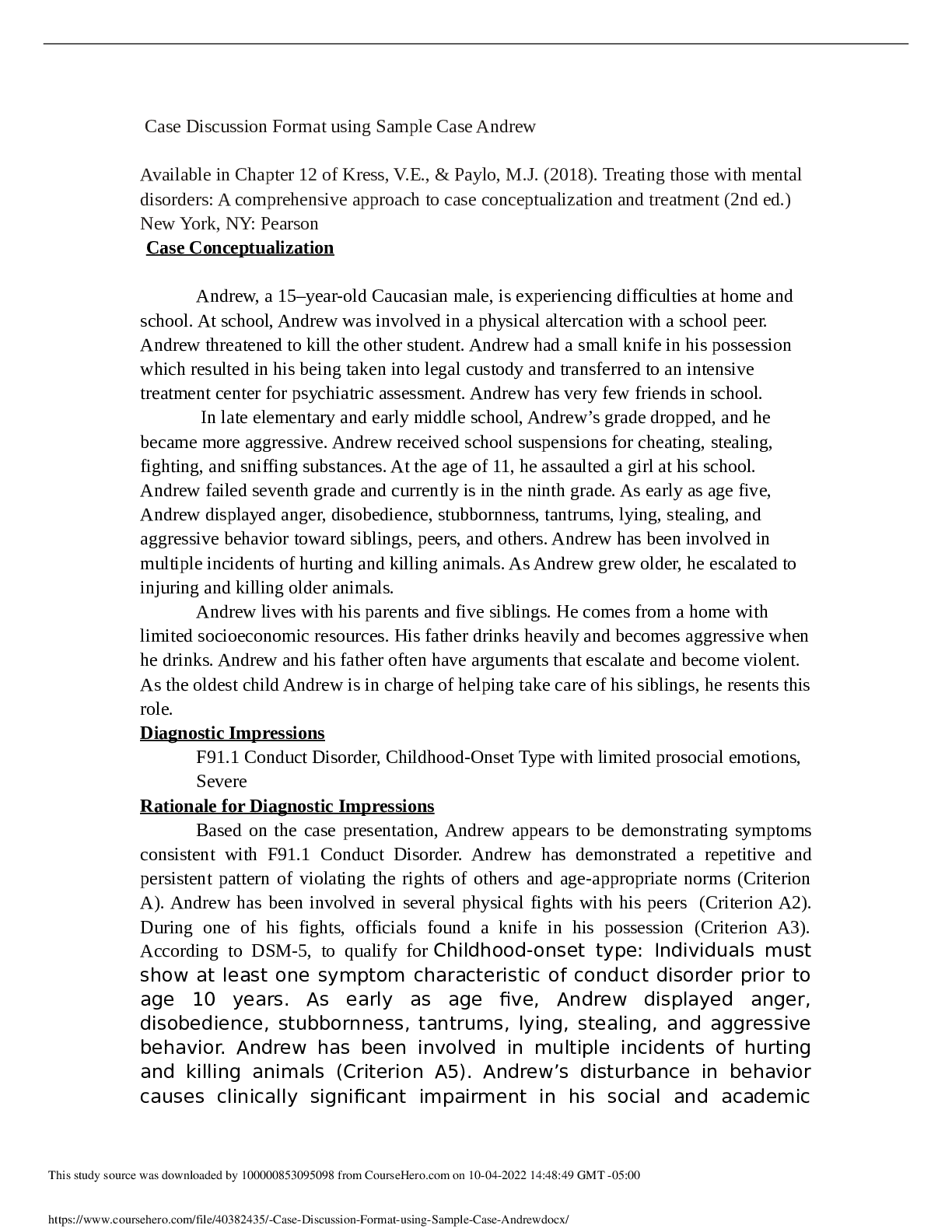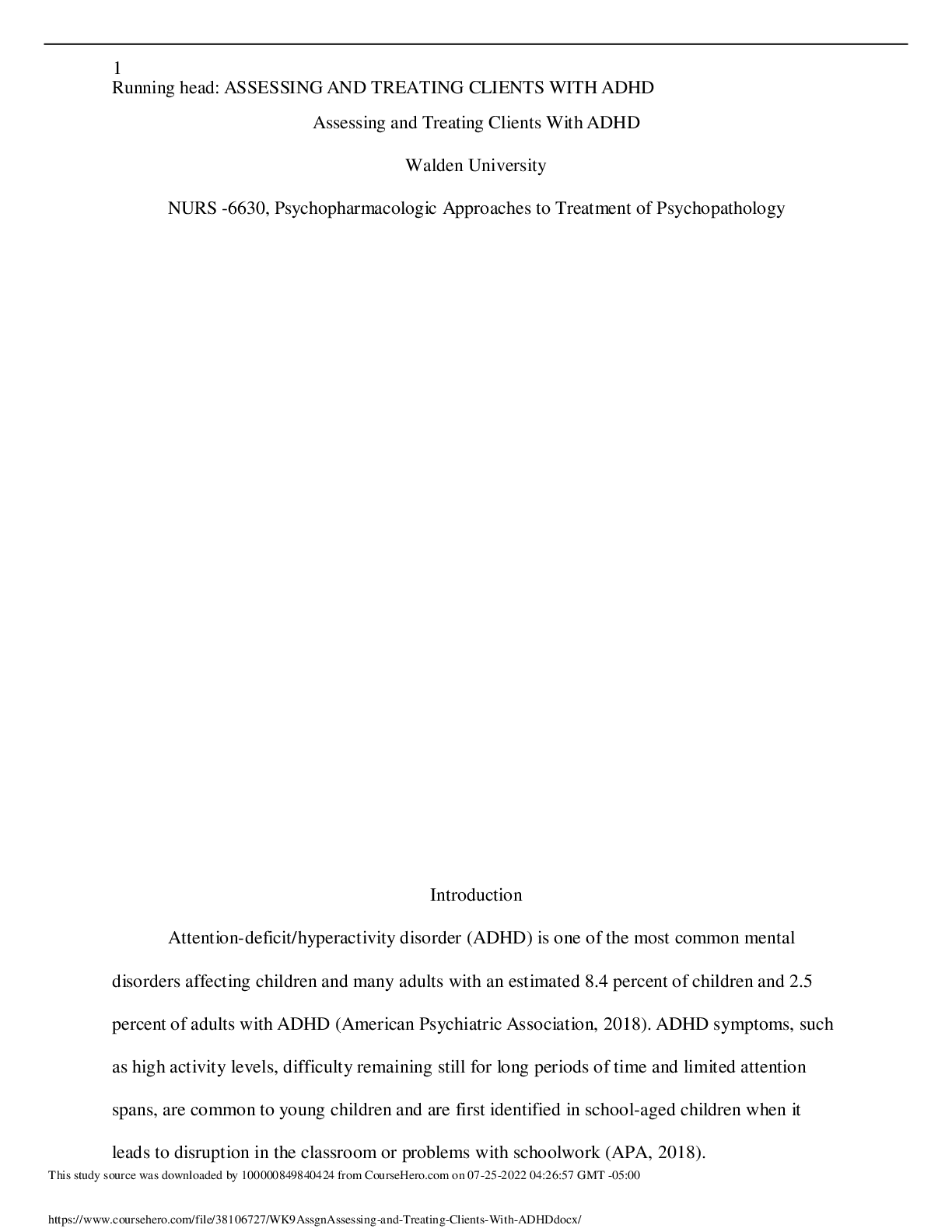*NURSING > CASE STUDY > Assessing and Treating Clients with Anxiety Disorders (All)
Assessing and Treating Clients with Anxiety Disorders
Document Content and Description Below
Examine Case Study: An Elderly Iranian Man With Alzheimer’s Disease. You will be asked to make three decisions concerning the medication to prescribe to this client. Be sure to consider factors that... might impact the client’s pharmacokinetic and pharmacodynamic processes. • At each decision point stop to complete the following: BACKGROUND Mr. Akkad is a 76 year old Iranian male who is brought to your office by his eldest son for “strange behavior.” Mr. Akkad was seen by his family physician who ruled out any organic basis for Mr. Akkad’s behavior. All laboratory and diagnostic imaging tests (including CT-scan of the head) were normal. According to his son, he has been demonstrating some strange thoughts and behaviors for the past two years, but things seem to be getting worse. Per the client’s son, the family noticed that Mr. Akkad’s personality began to change a few years ago. He began to lose interest in religious activities with the family and became more “critical” of everyone. They also noticed that things he used to take seriously had become a source of “amusement” and “ridicule.” Over the course of the past two years, the family has noticed that Mr. Akkad has been forgetting things. His son also reports that sometimes he has difficult “finding the right words” in a conversation and then will shift to an entirely different line of conversation. SUBJECTIVE During the clinical interview, Mr. Akkad is pleasant, cooperative and seems to enjoy speaking with you. You notice some confabulation during various aspects of memory testing, so the PMHNP performs a Mini-Mental State Exam. Mr. Akkad scores 18 out of 30 with primary deficits in orientation, registration, attention & calculation, and recall. The score suggests moderate dementia. MENTAL STATUS EXAM Mr. Akkad is 76 year old Iranian male who is cooperative with today’s clinical interview. His eye contact is poor. Speech is clear, coherent, but tangential at times. He makes no unusual motor movements and demonstrates no tic. Self-reported mood is euthymic. Affect however is restricted. He denies visual or auditory hallucinations. No delusional or paranoid thought processes noted. He is alert and oriented to person, partially oriented to place, but is disoriented to time and event [he reports that he thought he was coming to lunch but “wound up here”- referring to your office, at which point he begins to laugh]. Insight and judgment are impaired. Impulse control is also impaired as evidenced by Mr. Akkad’s standing up during the clinical interview and walking towards the door. When the PMHNP asked where he was going, he stated that he did not know. Mr. Akkad denies suicidal or homicidal ideation. Diagnosis: Major neurocognitive disorder due to Alzheimer’s disease (presumptive) RESOURCES § Folstein, M. F., Folstein, S. E., & McHugh, P. R. (2002). Mini-Mental State Examination (MMSE). Lutz, FL: Psychological Assessment Resources. [Show More]
Last updated: 2 years ago
Preview 1 out of 10 pages
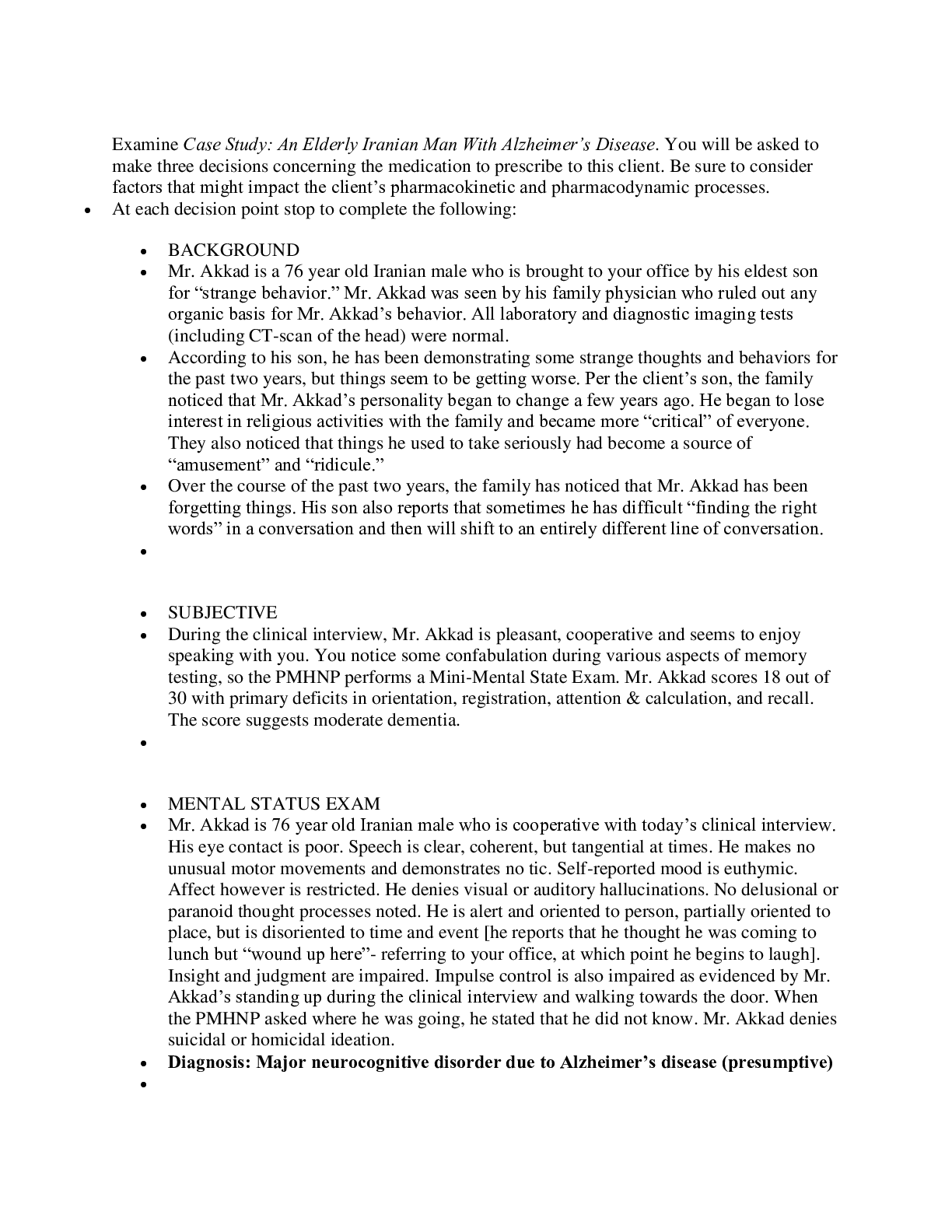
Buy this document to get the full access instantly
Instant Download Access after purchase
Buy NowInstant download
We Accept:

Reviews( 0 )
$13.00
Can't find what you want? Try our AI powered Search
Document information
Connected school, study & course
About the document
Uploaded On
Apr 20, 2020
Number of pages
10
Written in
Additional information
This document has been written for:
Uploaded
Apr 20, 2020
Downloads
0
Views
96



